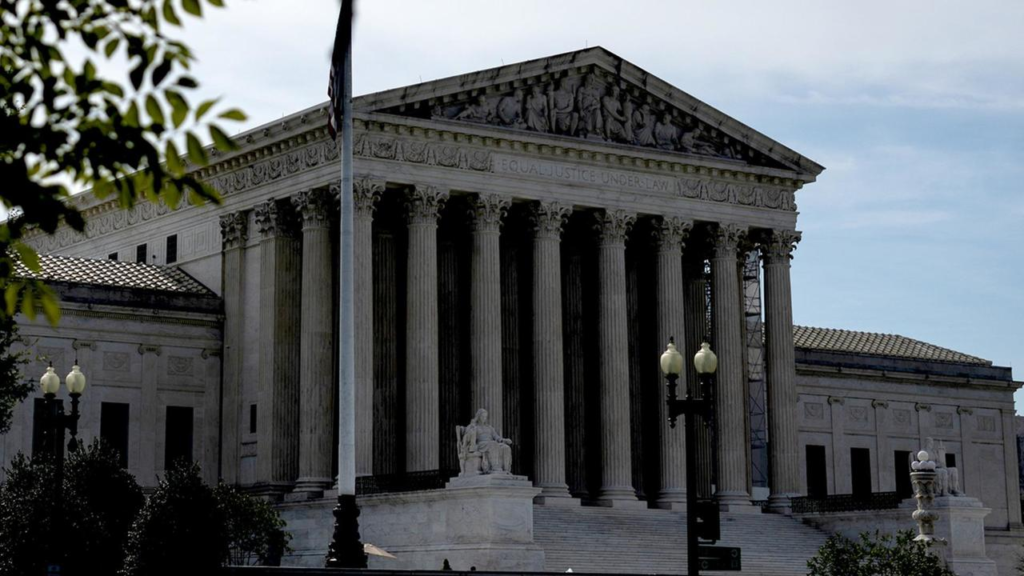
Washington — The Supreme Court on Wednesday rejected a bid from a group of social media users and two states to curtail the Biden administration’s efforts to pressure social media companies to remove content that officials said was misinformation.
The court determined that the users and the states, Louisiana and Missouri, did not have the legal right to seek an injunction against the Biden administration over its contacts with the platforms. The users had argued that their speech was unconstitutionally stifled when their social media posts were removed or suppressed after prodding by administration officials.
The Supreme Court ruled 6-3 in the case known as Murthy v. Missouri, with Justice Amy Coney Barrett writing for the majority. She was joined by Chief Justice John Roberts and Justices Sonia Sotomayor, Elena Kagan, Brett Kavanaugh and Ketanji Brown Jackson.
Murthy v. Missouri
The legal battle centered around the five social media users’ claims that the Biden administration’s communications with platforms violated their First Amendment rights. The challengers had accused federal officials of mounting a “sprawling federal ‘Censorship Enterprise,'” through which they coerced social media companies into censoring or suppressing speech they disfavored.
The users and officials from Louisiana and Missouri urged the Supreme Court to limit how far the federal government can go in interactions with social media companies, arguing that the efforts from the Biden administration crossed the constitutional line from persuasion, which is allowed, to coercion, which is not.
The Supreme Court’s ruling comes as the federal government prepares to combat misinformation online ahead of the November presidential election, while confronting sophisticated AI tools that are more readily available to the public. The case was one of several before the justices in its current term that stood at the intersection of social media and the First Amendment’s free speech protections.
In this dispute, a federal district judge in Louisiana sided with the social media users, finding that White House officials and some federal agencies and their employees violated the First Amendment by coercing or significantly encouraging social media companies’ content-moderation decisions. The judge issued a sweeping order restricting the Biden administration’s contacts with platforms.
A federal appeals court agreed that certain White House officials and the FBI unconstitutionally coerced platforms to suppress content related to COVID-19 vaccines and the 2020 election. But the court narrowed the scope of the district court judge’s order to cover a smaller group of federal officials.
The Supreme Court in October agreed to take up the case and consider whether the Biden administration impermissibly worked to suppress speech on Facebook, YouTube and X. Justices Clarence Thomas, Samuel Alito and Neil Gorsuch dissented from the court’s decision to pause the lower court’s injunction and said they would have maintained the limits on the Biden administration’s contacts with platforms while the case proceeded.
The Biden administration had argued that they were using the bully pulpit to persuade platforms to address content it believed was problematic, especially in the context of its efforts to push Americans to get vaccinated during the pandemic. The administration warned that the limits put in place by the district court would hamper its ability to address national security threats or pass along public-health information.
Lawyers for the challengers, though, had claimed that the Biden administration was using social media companies to silence speakers and viewpoints and accused government officials of bullying the platforms.